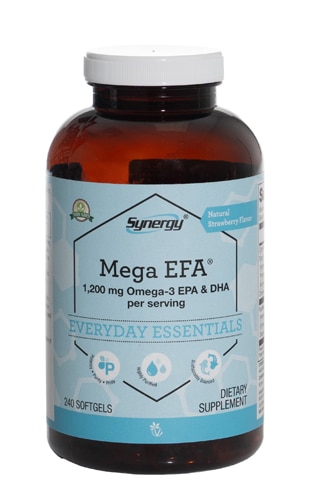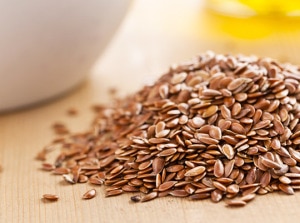Interest in omega-3s continues to grow, and for good reason. Omega-3--an essential fatty acid found in algae and certain fatty fish, such as salmon, sardines and cod--has been scientifically associated with impressive benefits. These include the ability to support cardiovascular health, maintain healthy cognitive function, support healthy moods and even influence joint comfort and flexibility.*
Despite the advantages of ingesting this substance, many people are stymied. Their question is: How can one eat the amount of fatty fish -- or other foods, like flaxseeds and walnuts (which contain an omega-3 precursor) -- necessary to obtain these benefits?
The answer is that it's often difficult to eat high-quality fish on a regular basis. The good news, however, is that there's a vast array of available omega-3 products that provide DHA (docosahexaenoic acid) and EPA (eicosapentaenoic acid), the most prominent omega-3 essential fatty acids.
Here's a sampling:
1. Softgels. Omega-3 EPA and DHA fish oil in easy-to-swallow softgel form is economical, convenient to take and are often citrus- or fruit-flavored.
2. Liquid. Unlike strong-flavored cod-liver oil, omega-3 fish oil in liquid form, which most people take by the spoonful, goes down easily. Although not as portable as softgels, the liquid oil is good economic value. A 16.9 fluid oz. bottle, for example, may provide 100 servings.
3. Krill oil. In addition to omega-3 EPA and DHA, krill oil, derived from shrimp-like crustaceans, also contains astaxanthin, an antioxidant substance produced by microalgae which gives salmon its pink color.*
Krill oil is also a good source of vitamins A and E, may help support a healthy inflammatory response, protect against free radicals and contributes to a healthy blood lipid profile already within normal range.*
4. Flaxseeds. Flaxseeds, a good source of fiber from the flax plant, contain alpha-linolenic acid, an omega-3 precursor. In its cold-milled form, flaxseeds can be stirred into smoothies and sprinkled atop salads or fruit dishes.
5. Flaxseed oil is another option. With its nutty flavor, it can be drizzled on vegetable dishes, salads and even yogurt. Flax oil also contains plant lignans, a type of fiber found in plants, nuts, whole grains and seeds, and may help support cardiovascular health.*
If you're concerned about which of these omega-3 products are best for you or what amount to take, it's a good idea to discuss this topic with your physician or healthcare provider.
Do you have a favorite way to use ground flaxseed in your recipes? Share it with us in the comments below.
*These statements have not been evaluated by the Food and Drug Administration. This product is not intended to diagnose, treat, cure or prevent any disease.




